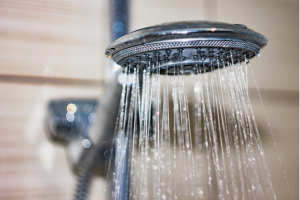What’s the Problem with Hard Water? A Western Springs Water Softening Company Answers
 If you live in the Western Springs area, you’ve probably heard a thing or two about hard water. At the very least, you’re probably aware that hard water has a negative connotation. However, do you know why hard water such a negative reputation?
If you live in the Western Springs area, you’ve probably heard a thing or two about hard water. At the very least, you’re probably aware that hard water has a negative connotation. However, do you know why hard water such a negative reputation?
If not, then you’ve come to the right place. Below, we’re going to explain everything you need to know about hard water, helping you understand why Western Springs homeowners install water softeners to eliminate it.
An Overview of Hard Water
Put simply, hard water is water that contains high amounts of calcium and magnesium. Though all water contains some amount of these minerals, hard water contains an excess amount of them.
Now, you may be wondering: “how do calcium and magnesium make their way into water in the first place?” The answer lies in the soil. Water is brought up from the soil, and as a result, if the soil has a high calcium and magnesium content, the water will too.
The Downsides of Hard Water
Though hard water is entirely safe for consumption, it has some negative effects. We’re going to discuss these negative effects in detail below.
It Causes Limescale Buildup
One of the most noticeable effects of having hard water in your home is limescale buildup. This is a white, powdery substance that tends to show up on sinks, faucets, and showerheads. It is, in essence, a small pile of calcium and magnesium particles that remain on a surface after hard water has evaporated.
Limescale does not cause any functional problems. However, it can definitely detract from the aesthetic and overall cleanliness of a home. As such, it’s generally regarded as undesirable.
It Causes Skin and Hair Problems
Perhaps the most notable of hard water’s effects are its effects on the skin and hair. Not only do calcium and magnesium clog skin pores, blocking the production of vital body oils, but they also cling to their hair, causing it to become rigid and unhealthy.
Over time, this can lead to problems such as acne, eczema, split ends, and more.
It Blocks Up Water Pipes
As was noted above, hard water is filled with calcium and magnesium. Unfortunately, when it passes through water pipes in the home, this calcium and magnesium cling to the pipes’ inner walls. This causes the pipes to become blocked up over time, which restricts the flow of water.
Eventually, this clogging can become so severe that water ceases to flow entirely. As such, it’s best to remove calcium and magnesium from your water, eliminating any risk of mineral buildup within the pipes. A water softener will get the job done.
It Places Strain on Water-based Appliances
Calcium and magnesium can also have a negative effect on water-based appliances. When these minerals pass through washing machines, dishwashers, and refrigerators, they can place undue strain on their inner components.
This can not only cause the appliances to deteriorate more quickly, but it also reduces efficiency as well. For this reason, it’s best to remove calcium and magnesium from your water supply altogether, which can be done by installing a water softener. You can call your local water conditioning company to get something set up.
Looking for a Western Springs Water Softening Company?
Are you dealing with hard water in your home? Looking to get rid of it? If so, and if you’re looking for a reputable Western Springs water softening company, look no further than Johnson Water Conditioning.
We’ve installed our water softeners in countless Western Springs area properties. With our help, your water will be soft in no time.
Contact us today for a free estimate!

 Better Water for
a Better Life
Better Water for
a Better Life
